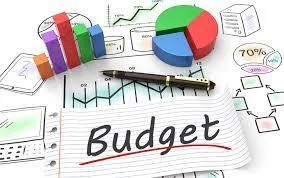
Creating A Budget That Doesn't Rely on Credit Cards To Make Ends Meet
Credit cards can be a useful financial tool, but relying on them to make ends meet can lead to a cycle of debt. If you're struggling to make ends meet without using credit cards, creating a budget can help you regain control of your finances. In this article, we will discuss how to create a budget that doesn't require using credit cards.
Track Your Expenses
The first step to creating a budget is to track your expenses. This will help you understand where your money is going and identify areas where you can cut back. Start by keeping track of all your expenses, including bills, groceries, and discretionary spending, for at least one month. This will give you a clear picture of your spending habits and help you identify areas where you can make changes.
Determine Your Income
Once you have a good understanding of your expenses, the next step is to determine your income. This includes any regular income you receive, such as your salary, as well as any additional income, such as freelance work or a part-time job. Make sure to take into account any taxes or other deductions that are taken out of your paycheck.
Set Financial Goals
Before you create a budget, it's important to set financial goals. These can include short-term goals, such as paying off a credit card or building an emergency fund, as well as long-term goals, such as saving for a down payment on a house. Having clear financial goals will help you stay motivated and focused as you create and stick to your budget.
Allocate Your Income
Once you have a clear understanding of your expenses, income, and financial goals, it's time to allocate your income. Start by prioritizing your expenses, such as rent or mortgage payments, utilities, and groceries. Then, allocate money to your financial goals, such as paying off debt or saving for a down payment. Finally, allocate money to discretionary spending, such as entertainment or dining out.
Cut Back on Discretionary Spending
If you find that your expenses exceed your income, it's important to cut back on discretionary spending. This can include eating out less often, canceling subscription services, or shopping for clothes or electronics less frequently. Cutting back on discretionary spending can free up money to pay down debt or save for your financial goals.
Stick to Your Budget
Creating a budget is only half the battle – sticking to it is the other half. Make a commitment to stick to your budget, and regularly review your progress to ensure that you're on track to meet your financial goals. Consider using tools such as a budgeting app or spreadsheet to help you stay organized and keep track of your expenses.
Creating a budget that doesn't require using credit cards is an important step in regaining control of your finances. By tracking your expenses, determining your income, setting financial goals, allocating your income, cutting back on discretionary spending, and sticking to your budget, you can achieve financial stability and avoid relying on credit cards to make ends meet. With discipline and dedication, anyone can create a budget that works for their financial situation.

© Copyright 2023. Elevare Debt Solutions, LLC. All rights reserved.